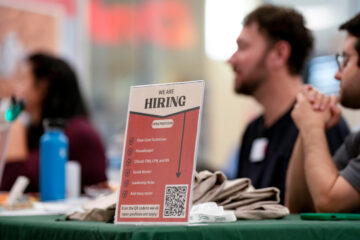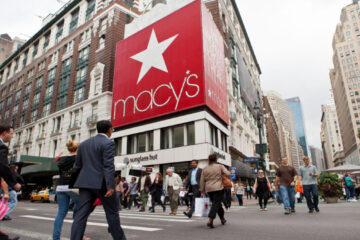Amazon (AMZN) made a bold move late last year to compete with Chinese marketplaces Temu and Shein. Both apps were growing in popularity due to their significantly low prices.
Temu sells a wide range of products priced between $1 and $50, while Shein sells items between $5 and $50.
💵💰Don’t miss the move: Subscribe to TheStreet’s free daily newsletter 💰💵
To prevent customers from flocking to these marketplaces, Amazon unveiled its Amazon Haul storefront. This storefront sells unbranded products priced at $20 or less in categories such as home, lifestyle, fashion, and electronics.
Related: Amazon has a new service that is struggling to attract customers
When it was first introduced, Amazon said that most of these items, which are shipped from sellers in China, would sell for $10 and under, with some priced as low as $1.
However, President Donald Trump’s recent tariffs announcement appears to have pushed Amazon to make a major change to its ultra-cheap storefront.
Amazon parcels are prepared for delivery at Amazon’s Robotic Fulfillment Centre in Sutton Coldfield, England.
Nathan Stirk/Getty Images
Amazon Haul makes significant change
A new section on Amazon Haul labeled “Brand Faves” allows customers to shop for name-brand items such as Champion, Adidas, Steve Madden, etc., which are shipped from Amazon’s inventory held in U.S. warehouses, according to a new report from The Information.
Some of these items are also sold for over $20. For example, a Champion women’s cropped T-shirt on the storefront is selling for $21.46, and a HUK men’s short-sleeve shirt is selling for $25.
Related: Amazon CEO gives hard-nosed message to employees
The change to Amazon Haul comes after Trump announced on April 2 a 10% “baseline” tariff on all countries importing goods to the U.S., with roughly 60 countries seeing higher tariff rates, in an effort to free the country from its reliance on imported goods.
However, Trump changed his mind and increased his previous 34% tariffs on China to 125%. He also paused reciprocal tariffs on all other countries for 90 days, bringing them down to a universal rate of 10%.
Amazon responds to consumer concerns about tariffs
Many consumers have grown concerned about Trump’s tariffs potentially making products more expensive, especially those produced in China.
According to a recent survey from Omnisend, 42% of Americans oppose new tariffs on Chinese goods, while 56% are worried that tariffs will increase prices.
Also, 29% of Americans said that if prices increase, they would immediately stop or make fewer purchases from sellers in China. More than 20% of Americans even said they would still shop at Chinese marketplaces unless the price hikes were more than 20%.
More Retail:
AT&T quietly issues stern warning to customers Sam’s Club makes a big change to a beloved membership perkGameStop announces risky move amid store closures
“I expect consumers will soon see price hikes, particularly in categories including consumer electronics, beauty, children’s clothing, and household goods – all categories that are popular on Temu,” said Greg Zakowicz, Omnisend senior e-commerce expert, in the survey. “If manufacturers have a reason to raise prices – even on existing inventory – they will.”
Amid this growing concern, Amazon has reportedly begun canceling orders for products made in China and other Asian countries
During a recent interview with CNBC, Amazon CEO Andy Jassy responded to these reports, claiming that the company’s top priority is keeping prices low for consumers.
“Whenever you have any threat of any kind of discontinuity, as a team, you have to think about what are the things you can do to help customers,” said Jassy. “So we’re doing everything we can to try and keep prices the way they’ve been for customers – as low as possible. We’ve done some strategic forward inventory buys to get as many items as makes sense for customers at lower prices.”
However, Jassy warned that third-party sellers on Amazon may pass extra costs onto consumers due to tariffs.
“I’m guessing that sellers will pass that cost on, I think they’ll try, and I understand why,” said Jassy. “I mean, depending on which country you’re in, you don’t have 50% extra margin that you can play with.
Related: Veteran fund manager unveils eye-popping S&P 500 forecast


